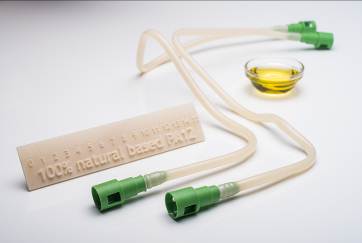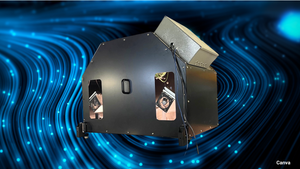Evonik: More PA 12 capacity, new production processes alleviate supply fears
Evonik Industries has expanded its polyamide (PA) 12 production capacity at Marl Chemical Site by 5,000 tonnes/year, thereby increasing the supply security of its Vestamid high performance polymer material.
June 30, 2014
Evonik Industries has expanded its polyamide (PA) 12 production capacity at Marl Chemical Site by 5,000 tonnes/year, thereby increasing the supply security of its Vestamid high performance polymer material.
In 2012, a fire at the same site disrupted supply of the material for an extended period due to unavailability of the key feedstock cyclododecatriene (CDT) for which Evonik was the sole supplier. To alleviate concerns regarding feedstock supply, Evonik says it has developed an improved conventional process for producing polyamide 12. "Significant progress was made in the development of a butadiene- and CDT-free route," the company reports.
|
The first PA 12 pipes made from 100% renewable raw materials have passed their tests successfully. |
"Vestamid is a sought-after material on the market. Substitutes, which were needed following the temporary outage of the CDT plant, have done well only in niche markets. We view it as our obligation to offer our core markets-above all, the automotive industry-the greatest possible supply security," says Dr. Michael Pack, the new head of Performance Polymers at Evonik since June 1.
The growth strategy is also underscored by the development of various technologies for the precursors of polyamide 12. On the one hand, Evonik now has a production-ready conventional route based on improved processes for an independent C12 line all the way to the polymer.
On the other hand, a biosynthetic route based on palm kernel oil-free from butadiene and CDT-has been significantly advanced. The process yields w-amino lauric acid, an alternative to petroleum-based laurinlactam, which subsequently yields an identical polyamide 12.
The initial batches of polyamide from this precursor have already been processed into pipes and tested. Samples for customer tests will be available soon. The process offers several advantages: 100% renewable raw materials as a basis for polyamide 12, identical product properties, and a simpler production process.
Further results from the pilot plant, which has been operating for over a year, will be the basis for the selection of the process for the next capacity expansion of polyamide 12.
About the Author(s)
You May Also Like


